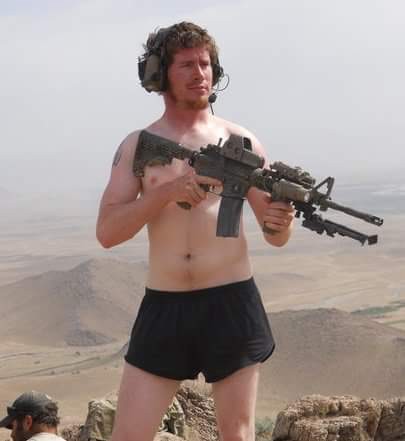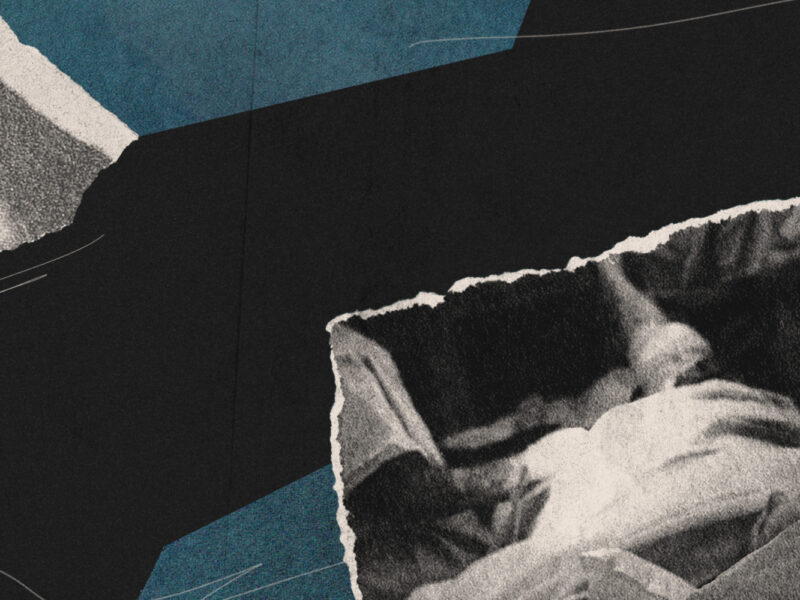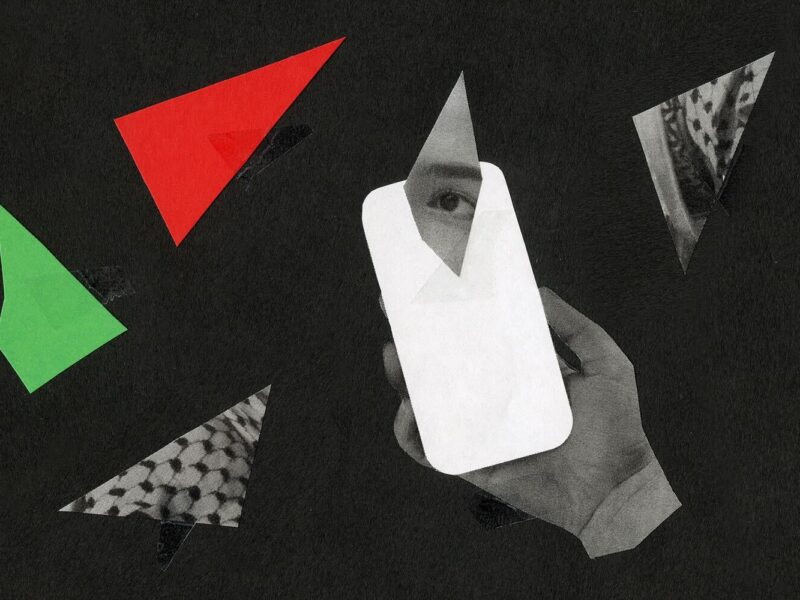This interview was conducted and originally published in June 2017.
Tim Hardin is a United States Army veteran who served on active duty for 12 years. He deployed twice to Iraq with the 3rd Infantry Division and 3 times to Afghanistan as a USASOC soldier. Now he’s a full-time student-veteran in upper Manhattan attending a CUNY school thanks to the Post 9/11 GI Bill. Tim organizes with his New York City chapter of the Democratic Socialists of America, where he’s also a part of the DSA Veterans Working Group.
Natalia: Did 9/11 influence your decision to join the military? I’ve heard from a lot of veterans about how it was a formative event.
Tim: I grew up in rural western North Carolina, I’m from a pretty poor family. Neither one of my parents graduated from high school — they got their GEDs after I was born. So I joined the military to escape poverty and get money for college.
And I was in high school when 9/11 happened. It influenced me, but it didn’t leave a scar on my psyche as it did for some people. I understand it was a formative event for a lot of people, but I don’t like the romanticism that’s attached to it. Look at all the frustrating and harmful ways that the romanticism [surrounding the War on Terror] is used to manipulate Americans into getting behind the jingoism which runs through so much of our discourse.
Natalia: So we’ve had all of these years of war, war that you served in. And now a lot of people I know who are ex-military or still in the military are saying that the rules of engagement have changed under Trump. Do you see it this way?
Tim: In a broad sense, all indications are that the rules of engagement have changed. This doesn’t surprise me.
This administration has shown a complete disregard for civilian casualties. It damages our standing abroad and it really hurts our mission. It’s self-defeating.
You know, I actually still have my rules of engagement card from when I was deployed the first time in 2003. [I remember] the first time I got into a firefight in 2003, when we invaded [Iraq]. You know, it’s an extremely unnatural thing, I think, to try to kill another person. At least for the broad majority of people who are not sociopaths.
Can you really hesitate if you’re questioning whether there is a threat in front of you? This is why there are so many critical protections that we have — they’re to keep us from making a situation worse.
I’ve had some people tell me off the record — who can’t go on record because they’re still [on] active duty — that the signal to military command from the White House is that “we’re not going to care so much if a bunch of Iraqis die,” or whatever.
Obama obviously had his flaws as president and leader, but he was also more conscious of the fact that we’re killing people. I’m not seeing that [level of] care with the Trump administration.
Reporting on civilian casualties [quickly] evaporates from the public’s memory. This hurts [the mission]. But we forget so quickly.
Natalia: A lot of people in the military are conservative, so I’m always being told that, hey, they don’t care about any of this stuff, they’re just happy that a Republican is president. That’s interesting to me, because of course Trump is not a real conservative. He used the conservative platform to his advantage to get to the White House, but that’s it. Do you think some people in the military are starting to see him for what he is?
Tim: I was in the Army for 12 years on active duty, and for major events that impacted broad swathes of the public — take for example the crisis of 2008 — there was such a signifiant buffer for me there.
Most people on active duty are insulated from a lot of the events happening to the general public, so it’s actually very easy to be straight up apolitical.
I was generally apolitical for most the time I was in the military, until my last four years — when I started developing my own personal politics.
Most people in the military are young and impressionable, and they’re lacking an education. So you can have a lot of toxic masculinity. Or, for example, racism. And they’re insulated from the public, so there are significant obstacles to having a culture of accountability. I think that’s the real issue.
Natalia: Do you encounter anger from other veterans when you say stuff like that? Some of my veteran friends are upset with me for doing this series, for example. Because, well, we’re touching on issues that can be very upsetting.
Tim: Most of my interaction with other veterans now comes via Facebook. And I’ve been in my own little bubble with veterans who I knew and worked with. [But] last November I really took a more socialist turn. So there have been some mean and hateful things said to me. A [former] Green Beret told me, “I want to split your gristle.” And this was in response to what I think is really mild socialist stuff.
Yeah, I’ve been threatened and criticized by other veterans, not even dyed-in-the-wool conservatives, for that matter.

Natalia: I’m one of those people whose life — let’s admit this — has basically been ruined by student debt. And when I talk about how education should be a right, I’ve definitely had veteran friends say things like, “I had to fucking go to fucking Iraq because I wanted an education. Now some privileged assholes will get it for free?” And I completely see their argument, I’m not trying denigrate what they went through — but I also see a flaw in that logic, and I’m wondering if you see it too, or if you think I’m completely off-base to point it out.
Tim: That’s a refrain that I’ve seen out there multiple times as I advocated for free public higher education.
I tell people that when fighting for this country, I got put in some really bad situations that no one should be put in. People shouldn’t have to risk their lives so they can have access to higher education.
The system rewarded me because I risked my life for it, but education is a human right. You’re investing in your citizens when you give them the right to an education. It’s very simple stuff, and I don’t understand why we haven’t figured that out as a country.
There are people who come out of combat who are human husks. How many thousands of people who signed up to get free college are dead now? We live in the richest country in the world, and we could choose to empower Americans and invest in them.
I don’t understand why the richest country in the world does not have this shit figured out. I mean, there’s lots of reasons for it, but I just get so angry about it.
Natalia: So we were talking earlier about how there’s lots of young men in the military, and how that determines a lot of things. In this interview with Task & Purpose’s Adam Linehan we also discussed age, and how a lot of these young guys, for what it’s worth, are not going to get radicalized by the current administration and are not going to want to let Trump use the military against the American people. But I think we can all see someone like Steve Bannon just itching for that. Do you have any thoughts on that? Is this a possibility under Trump?
Tim: Well it didn’t take long for Homeland Security to go after undocumented immigrants under Trump, did it? And it could be a trial balloon — like, “How much will the American public be willing to take?”
I’m a pretty positive person, but I’m also a realist, and the young enlisted guys? They can be impressionable. And it doesn’t help that, like I said, a lot of people who have been in the military for a long time can feel isolated from the general public. It’s difficult with no cross-dialogue, no moderating influence, and people creating their own bubbles.
In my old unit, Fox News was always playing at the battalion headquarters. I see the same people who were my superiors just Breitbarting it up on Facebook right now.
So I’m not super hopeful. Maybe I’m hopeful on a regional basis. I don’t have a good read on what might happen, but I think that whatever happens would be very different from place to place.
I think Trump might try to turn the military [against the American people] if he comes close to being impeached.
And impeachment doesn’t necessarily mean the end of his presidency, but that there are legal clouds gathering above his head. Even though our system is slow, it does eventually process these things. Should Trump realize he might get booted from the White House, he could turn aggressive. But I think by that point the people on his side would also be like rats leaving a sinking ship.
Natalia: There is a lot of indication that Trump wants a war. He’s like a little boy who thinks its all a big game, and the military is his big boy toy. What do you think renewed armed conflict would look like under Trump?
Tim: I don’t think we’re headed into a new World War or anything like that. Like with Russia — it’s in the Trump administration’s interests to placate them, because of business interests.
But he’s itching to be a wartime president. Maybe [an attack on] North Korea? Maybe lots of limited strikes all over the place?
But [the Trump administration] also has a lot of turnover, and maybe that turnover will continue, and the chaotic shitshow will continue.
I mean, who’s really advising him on these issues? People like Jared Kushner? God, just think about it.
The bottom line is that they’re trying to run this government like a business, so they’ll do whatever is good for their business interests. Maybe they’ll just keep launching fucking Tomahawks for show.



